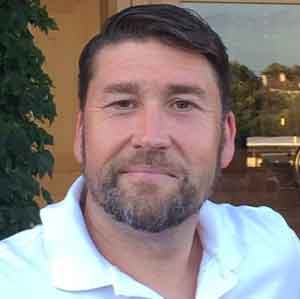Norfolk and Waveney Health and Care Partnership: Building a community of reservists
 Thousands of former NHS staff responded to a national plea to return to the frontline during the first wave of the pandemic. In August 2020, systems were asked to pilot their own local programmes to test the concept of a reservist scheme. The Norfolk and Waveney team has since built a strong community of 85 active reservists through regular communication and an empathetic mindset.
Thousands of former NHS staff responded to a national plea to return to the frontline during the first wave of the pandemic. In August 2020, systems were asked to pilot their own local programmes to test the concept of a reservist scheme. The Norfolk and Waveney team has since built a strong community of 85 active reservists through regular communication and an empathetic mindset.
“I think our provider colleagues initially saw reservists as just bank staff by another name,” recalls Mark Rodgerson, Programme Manager for the Norfolk and Waveney Bring Back Staff and Reservist Programme. “Signing up as a reservist is a totally different kind of investment, though. They are giving up their precious time in retirement to do something for the community – it’s a very personal commitment. We couldn’t just treat them as bodies to assign to shifts. We had to offer them a sense of belonging.“
Building a connected community
Each new reservist is paired up with a buddy on day one. “Buddying has both a clinical and a personal dimension,” says Mark. “Many returning nurses hold temporary NMC registrations, so need ongoing supervision. If your buddy does the supervising, that provides camaraderie and reassurance. We also run shadow shifts to ease people back into practice. Some returners had 30 years of experience but were worried that their skills were rusty. Having a buddy makes returning less daunting.”
The team invests a lot of effort in communication. “This is a high welfare programme,” Mark stresses. “We talk to everyone weekly and we know them all by name. We also make a point of saying ‘thank you’ – congratulating the group on working 5,000 hours in the last few months, for example.” A monthly newsletter highlights individual efforts, and a monthly reservists’ Zoom call is well attended, despite its evening timeslot. “We regularly get 40 or more reservists joining,” says Mark. “There’s a lot of enthusiasm. People share anecdotes, training tips, even local newspaper articles.”
One unexpected bonus has been the lack of workplace politics. “There’s a real team spirit. People are very focused on the task,” Mark comments. “Some returners were very senior people, but they are not interested in hierarchy or career now – they’ve put all that behind them. It’s been a levelling experience.”
Nurse returner, Lynda Barnes, agrees: “There’s a real family feel in the team and I’ve had all the training and support I need. Despite my career break, it all came back to me very quickly.“
Focused training
Initial training is thorough within a narrowly-defined scope “We didn’t want to scare people off with a huge, daunting programme that might take months to complete,” says Mark. “We created a mandatory programme that wasn’t too onerous and that landed well. People felt competent and confident to practise after completion.”
Frank Shannon, an RAF veteran and qualified nurse who returned to the NHS in November 2020, agrees: “We received all the training we needed through a combination of online modules and practical life support training in person, plus individual training on systems. The support has been excellent and well-organised.”
A flexible, peripatetic workforce
“We’ve acquired a flexible workforce almost as an accidental by-product of the programme,” Mark marvels. “For years we’ve tried to break down the glass walls between organisations. Now we have the agility we previously struggled to achieve. The reservists are a genuine peripatetic workforce that works flexibly across ICS, PCN networks and vaccination hubs.“
For providers, seeing is believing. “The experience, knowledge and professionalism of the reservists has played a huge part in the success of our staffing model across our large scale vaccination sites,” comments Lucy Dennis, Operations Lead for the Covid-19 Mass Vaccination Programme.
“The end-to-end support from the Norfolk and Waveney team and the efficiency and flexibility of the booking process have been a real asset. Our partnership with them has helped us improve the efficiency of our integration and deployment models as a lead provider across the health and social care system.”
The question on everyone’s mind is what next? “Many people are thinking about longevity now,” says Mark. “We’re running focus groups asking reservists what would make it interesting and worthwhile for them to continue. Personally, I feel passionately about this programme. I’d feel a huge sense of loss if it didn’t continue in some form. The biggest lesson for me has been the generosity of the human spirit – so many people have been willing to step up and help. How can we continue to recognise and build on that goodwill?”
